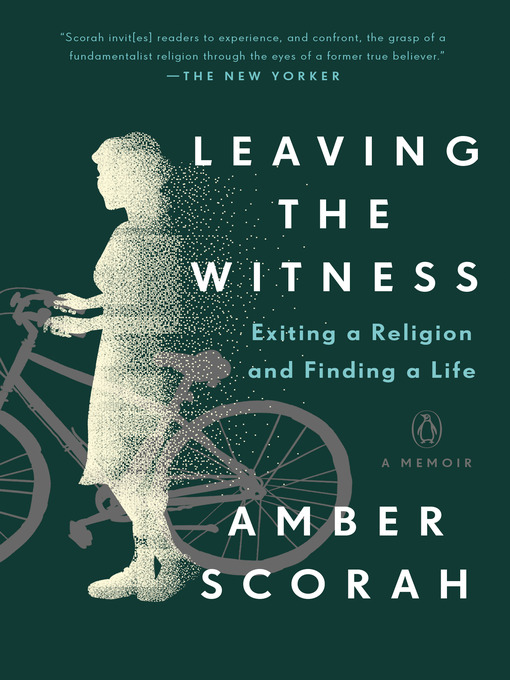
Leaving the Witness
Exiting a Religion and Finding a Life
کتاب های مرتبط
- اطلاعات
- نقد و بررسی
- دیدگاه کاربران
نقد و بررسی

A third-generation Jehovah's Witness secretly proselytizing in China, Scorah suffered a crisis of faith that led to her being shunned by friends and family. Further tragedy when she moved to New York made her actively look for meaning beyond religion. Based on a Believer article with a record number of hits and letters for the magazine; the New York Times story of her son's death received 2.2. million views in its first four days.
Copyright 1 Library Journal, LLC Used with permission.
Starred review from April 8, 2019
In her impressive debut, Scorah recounts her years as a Jehovah’s Witness in China, her decision to leave the faith, and her ongoing spiritual questioning. In 2005, Scorah and her husband left Vancouver for Taipei before volunteering to move to Shanghai, where being a Jehovah’s Witness could get them deported. There, they worked as English teachers and private tutors, covertly preaching their doctrines of impending apocalypse to Chinese citizens and expats they meet. Eventually, Scorah found a job working on a podcast, and through her work and interactions with a man she met online, she began to question her religion. After revealing the intimate friendship to her husband, Scorah decided she needed to leave him and was shunned by her family and friends. Scorah’s prose is straightforward, and she has a winning sense of humor about how much she’s changed: “We gave up any hope of a career all for the sake of saving these people, and goddammit—no pun intended—we were very concerned about their destruction.” Scorah provides a rare glimpse into the insular world of the Jehovah’s Witnesses, and her accounts of expat life and leaving her faith should give this candid memoir wide appeal.

April 15, 2019
Scorah, an editor at Scholastic, debuts with the story of her life in, and after, the Jehovah's Witnesses. Having been born into the church, the author went on to become one of its missionaries to China; the most fascinating portions of her memoir describe her years in Shanghai. Scorah paints the picture of an innocent and unquestioning young girl who grew up to be a more independent, yet socially impaired, adult. Following a protracted teenage tryst that caused her to be ostracized from the church for a time, she married a man she did not love and found escape and meaning as a missionary, reaching out to whomever she could find to teach Jehovah's Witness doctrine. The author is adept in her portrayals of the conflict in cultures she discovered in China and in relaying the challenges she faced as a Westerner trying to convert people in a foreign country. A lengthy online affair with a man who became driven to prove her religion wrong led Scorah to have doubts and eventually begin the process of leaving her husband and then the church--and thus most everything she had ever known. The author eventually found new work and friendships in Shanghai, and she later relocated to New York. Her work is well-written, and only occasionally does the author delve too heavy-handedly into salacious tell-all territory. Mostly, she provides an eye-opening account of how Jehovah's Witnesses live and operate. Sadly, the tale lacks a happy ending, as the author would lose her 4-month-old son. "When I arrived at lunch [at daycare] to nurse him, he was dead," she writes in the heartbreaking final section. "No one could tell me why, or what had happened." The narrative ends on a note of near-despair, with only a glimmer of hope. "I have called a truce with the unknown," writes Scorah, "and I am learning to live with the disquiet." An intriguing read about a mysterious religion.
COPYRIGHT(2019) Kirkus Reviews, ALL RIGHTS RESERVED.

























دیدگاه کاربران